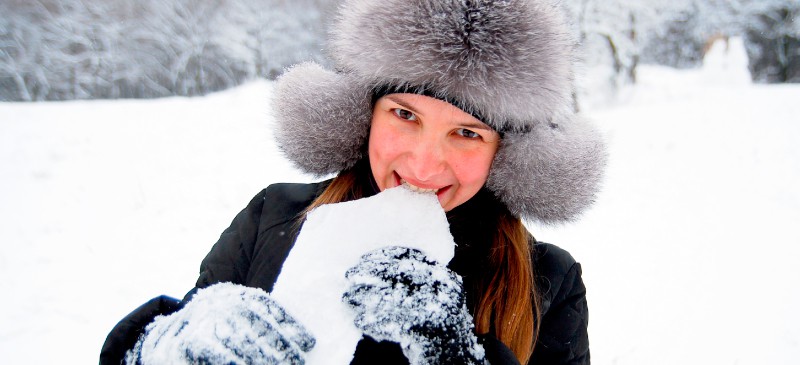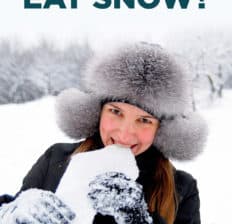This Dr. Axe content is medically reviewed or fact checked to ensure factually accurate information.
With strict editorial sourcing guidelines, we only link to academic research institutions, reputable media sites and, when research is available, medically peer-reviewed studies. Note that the numbers in parentheses (1, 2, etc.) are clickable links to these studies.
The information in our articles is NOT intended to replace a one-on-one relationship with a qualified health care professional and is not intended as medical advice.
This article is based on scientific evidence, written by experts and fact checked by our trained editorial staff. Note that the numbers in parentheses (1, 2, etc.) are clickable links to medically peer-reviewed studies.
Our team includes licensed nutritionists and dietitians, certified health education specialists, as well as certified strength and conditioning specialists, personal trainers and corrective exercise specialists. Our team aims to be not only thorough with its research, but also objective and unbiased.
The information in our articles is NOT intended to replace a one-on-one relationship with a qualified health care professional and is not intended as medical advice.
Can You Eat Snow? Whether It’s Safe, Plus Pros + Cons
February 23, 2022

We hear a lot about the importance of staying hydrated, not to mention all the health and environmental perks of eating seasonally — such as obtaining more nutrients and cutting down on resources used for food transportation. This raises an interesting question: Can you eat snow?
Anthropologists tell us that humans living in cold climates have likely been eating snow since the dawn of time, but is it safe to eat snow? Because it’s mostly water, snow is of course hydrating, but there’s also the risk that it can be contaminated with a slew of chemicals and even air pollutants, especially snow falling in urban areas.
Let’s find out below if it’s safe to eat snow in 2022 and beyond.
What Is Snow Made Of?
As you probably assumed, snow is primarily made of water. However, it can also contain other minerals and compounds depending on your location and where you gather the snow from.
It’s possible for snow to contain sulfates, nitrates, pesticides, carbon, and even potentially harmful pollutants and chemicals like formaldehyde or mercury.
While snow starts out as mostly water when it begins to fall from high up in the sky, as it’s falling it can catch pollutants that are present in the atmosphere. Then, when it reaches the ground it can also combine with other chemicals found on the ground.
Some of the most common compounds that can make their way into snow include:
- Black carbon, also called soot, which is released from coal-fire plants and wood-burning stoves
- Pesticides and fertilizers sprayed on lawns and fields (this is especially true of snow that falls on conventional farms where winter vegetables are being grown)
- Pollutants, such as sulfates, mercury and DDT
- Small amounts of gasoline exhausts present in the air, such as toluene, xylenes and benzene (which are known carcinogens)
- Magnesium chloride if snow has been plowed
Can You Eat Snow?
In most cases, yes, it’s safe to eat freshly fallen snow, but there are some caveats.
The best way to avoid eating contaminated snow is to gather fresh snow that has fallen after several hours of it snowing. The first snow to fall is most likely to gather pollutants in the air, but the snow that falls a couple hour later will be cleaner because a good deal of the pollutants in the atmosphere will have been caught already.
Be sure to not eat snow that has been plowed or walked on.
Also avoid any snow that looks muddy or yellow (for obvious reasons!). If snow mixes with a lot of soil or any manure, don’t eat it for risk of consuming harmful pathogens.
If snow has fallen in your backyard, it’s best to eat the snow on the top of the pile or the middle, but avoid the snow touching the ground. Snow that’s directly on the ground is most likely to pick up pesticides from the grass or dirt in your yard, however concentrations of pesticides in the snow will still likely be low.
Snow that falls in unpopulated areas, such as open parks or quiet neighborhoods, is likely to be cleaner than snow that falls in busy urban areas due to the amount of pollutants and exhausts in the air.
It’s also unsafe to eat snow that has accumulated by smokestacks, active volcanoes or radiation accidents. Snow that falls in rural locations with lots of farming may have high levels of agricultural chemicals as well.
Is It Safe to Eat Snow? (Pros and Cons)
Even when snow gathers compounds and minerals from the air or ground, it’s typically still very clean overall. Studies suggest that fresh snow tends to be even more pure than most drinking water.
If you’re going to eat snow, one of the most common recommendations is to eat a limited amount, such as one or two handfuls in a day. This approach is low-risk because levels of chemicals in snow are not thought to be high in most locations.
Here are some of the pros of eating snow:
- It increases your water intake, which helps fight dehydration. Snow is primarily water, and drinking water is important for numerous bodily functions, including digestion, detoxication and so on.
- It’s sustainable, since it comes directly from the sky! Snow doesn’t use up resources or come in plastic bottles, so it’s good for the planet.
- If you want to consume large amounts of snow, for example if you’re camping, you can melt the snow to make drinking water and then ensure extra purity by running it through any available filter (or using it to make distilled water).
Why shouldn’t you eat snow? Here are potential cons and problems to consider:
- Snow can pick up substances in the air and on the ground, such as bacteria, soil, pollutants and other problematic chemicals.
- While no snow-related illnesses are known to be major risks for the general population, there’s the potential that eating dirty snow could cause digestive issues or other reactions.
Risks and Side Effects
Can you get sick from eating snow? It’s not likely but still possible if you eat snow that is contaminated.
A small amount is generally thought to be safe and non-toxic, but eating a lot may give you a stomachache or cause side effects like vomiting, diarrhea or an infection if you eat snow that contains contaminants.
Still, doctors and researchers feel that eating snow is safe for most people as long as it’s clean, white snow that is gathered from an unpolluted location on a non-windy plain, but there’s always a tiny risk to be considered for people with compromised immune systems or small children.
Conclusion
- Can you eat snow? Is snow safe to eat? Yes and no, depending on the type of snow and your location.
- It’s usually safe to eat in small to moderate amounts, especially if it’s snow that has fallen somewhere without much air or ground pollution.
- The problem is as snow falls, it can collect things like pesticides, sulfate, nitrates, formaldehyde and mercury.
- Collect snow for eating after it has been snowing for an hour or two to help avoid eating dirty snow.
- Make sure to eat only clean, white snow that has recently just fallen, not brown, gray or yellow snow. Never eat snow that is plowed, and be careful about snow fallen on farms sprayed with pesticides, in urban areas or on dirty streets.





